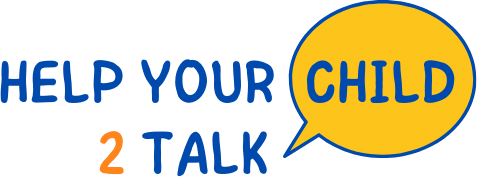Children’s speech and language development is influenced by various factors, one of which is their breathing pattern. While it might seem harmless, mouth breathing can have a significant impact on a child’s articulation and speech clarity. In this article, we will answer the question, “How does mouth breathing impact a child’s speech?”
How Mouth Breathing Influences Speech Production
Mouth breathing can affect speech production in several ways:
- Tongue Positioning: For clear speech, optimal tongue positioning is necessary. Mouth breathers often rest their tongue on the bottom of their mouth instead of the roof. This can lead to unclear speech.
- Facial Muscle Development: Continuous mouth breathing can alter facial muscle development and jaw alignment, leading to changes in speech mechanics.
- Breathing Takes Precedence Over Speech: When a child is relying on mouth breathing, they may have little time or energy to use their mouth to produce speech.

Causes of Mouth Breathing in Children
There are several reasons why a child might breathe through their mouth:
- Enlarged Tonsils or Adenoids: These can block the nasal airway, making it difficult for a child to breathe through their nose.
- Allergies: Nasal congestion due to allergies can force children to breathe through their mouth.
- Deviated Septum: A structural problem within the nose that makes nasal breathing difficult.
- Small Nasal Passages: Some children may have small nasal passages that when blocked with nasal mucous and/or swelling leads to mouth breathing.
- Chronic Rhinitis or Sinusitis: Inflammation of the nasal passages and/or sinuses can result in nasal blockage.
Children at Risk for Chronic Mouth Breathing
Children with a diagnosis of Down syndrome are particularly at risk for chronic mouth breathing. The reasons include:
- Low Muscle Tone: Many children with a diagnosis of Down syndrome have hypotonia or low muscle tone. This affects the muscles of the mouth and face, leading to an open mouth posture at rest.
- Narrow Nasal Passages and Nasal Congestion: Some children with Down syndrome have narrower nasal passages, making nose breathing more challenging and resulting in a predisposition to mouth breathing. Nasal congestion due to illness or allergy can also contribute to mouth breathing.
- Enlarged Tonsils and Adenoids: A higher prevalence of enlarged tonsils and adenoids in children with Down syndrome can further impede nasal breathing.
What Parents Can Do to Help
- Awareness: Understand the signs of mouth breathing and monitor your child, during wakefulness and sleep.
- Maintain Good Air Quality: Ensure the home environment is free from allergens excessively dry air that can cause nasal congestion.
- Seek Medical Advice: Discuss your child’s mouth breathing with their pediatrician and pediatric ENT. Talk about viable interventions and make sure to rule out sleep apnea.
- Seek Therapy: Speech and language therapy can be beneficial to strengthen oral-facial muscles.
Medical Interventions
- Tonsillectomy or Adenoidectomy: Removing enlarged tonsils or adenoids can clear the airway.
- Allergy Treatment: Addressing underlying allergies can relieve nasal congestion.
- Orthodontic Treatment: To correct structural problems in the mouth or jaw.
- Surgery for Deviated Septum: A procedure to straighten the nasal septum.
FAQs
- Is occasional mouth breathing harmful?
- Occasional mouth breathing, especially during strenuous activities or with cold symptoms, is normal. However, consistent mouth breathing can have long-term effects.
- Can mouth breathing affect academic performance?
- Yes, mouth breathing can affect sleep quality, leading to daytime fatigue, irritability, and concentration issues.
- Does mouth breathing change facial structure?
- Chronic mouth breathing can influence jaw growth and facial appearance over time.
- Is mouth breathing a sign of ADHD?
- While not a direct cause, sleep disturbances from mouth breathing can mimic ADHD symptoms.
- When should I see a doctor for my child’s mouth breathing?
- If your child consistently breathes through their mouth during the day and night, it’s advisable to seek medical attention.
Resources
- Mouth Breathing and Speech Disorders: A Multidisciplinary Evaluation Based on The Etiology – PMC (nih.gov)
- WHAT EVERY PARENT NEEDS TO KNOW ABOUT MOUTH BREATHING (childrensairwayfirst.org)
- Handy Handout #522: Mouth Breathing (handyhandouts.com)
- Healthy Breathing, ’Round the Clock: Problems with airway functioning during sleep can hurt children’s health. And SLPs, alongside other professionals, are on the front lines of identification and intervention.: The ASHA Leader: Vol 23, No 2
Summary/Conclusion
Mouth breathing can have profound effects on a child’s speech, language, and overall communication development. Certain children, including those with a diagnosis of Down syndrome, are particularly at risk. By understanding the implications and seeking timely interventions, parents can help ensure their child’s healthy breathing, growth, and development.




0 Comments